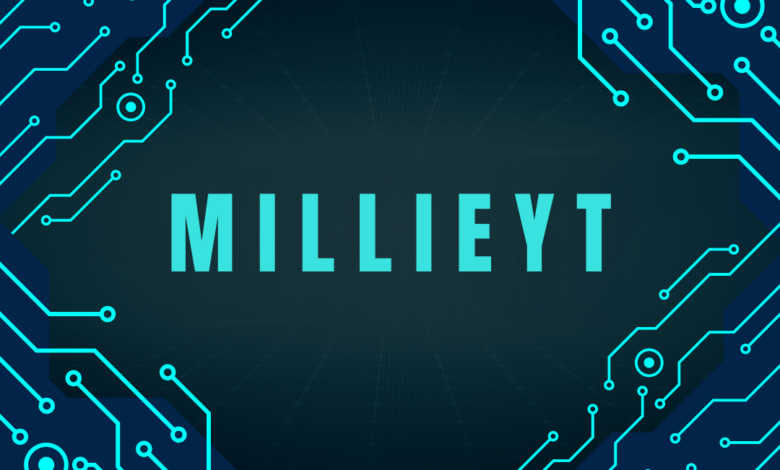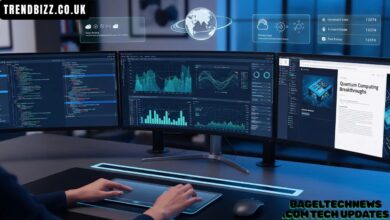Understanding the Importance of Mıllıeyt in Modern Technology

In today’s rapidly advancing technological landscape, innovations such as Mıllıeyt are crucial in shaping various industries. Mıllıeyt, a term encompassing the fusion of machine learning, IoT (Internet of Things), and artificial intelligence,e holds immense potential to revolutionize how we interact with technology and data. This article explores the significance of Mıllıeyt in modern technology, its applications across different sectors, challenges, and prospects.
Mıllıeyt represents a convergence of cutting-edge technologies to enhance automation, data analytics, and decision-making processes. It leverages the power of interconnected devices, advanced algorithms, and real-time data processing to drive innovation and efficiency across various domains.
The Evolution of Mıllıeyt in Modern Technology
Over the years, Mıllıeyt has evolved significantly, propelled by advancements in hardware capabilities, software algorithms, and connectivity infrastructure. From its inception as a concept to its practical implementation in everyday devices, Mıllıeyt has changed how we see and use technology.
Applications of Mıllıeyt in Various Industries
Healthcare
Mıllıeyt is pivotal in streamlining patient care, optimizing treatment plans, and predicting health outcomes in the healthcare sector. From vital sign monitors on wearable technology to AI-powered diagnostic tools, Mıllıeyt enhances medical services and improves patient outcomes.
Automotive
Mıllıeyt is revolutionizing the automotive industry by enabling autonomous driving, predictive maintenance, and personalized driving experiences. Through interconnected vehicle systems and AI-driven analytics, Mıllıeyt enhances road safety, efficiency, and convenience.
Finance
Mıllıeyt facilitates algorithmic trading, fraud detection, and personalized financial services in finance. By analyzing vast amounts of data in real time, Mıllıeyt helps financial institutions make informed decisions, manage risks, and deliver tailored solutions to clients.
Agriculture
Mıllıeyt transforms agriculture by enabling precision farming, crop monitoring, and resource optimization. Farmers can make data-driven decisions to increase yields, conserve resources, and mitigate environmental impact through IoT sensors, drones, and AI algorithms.
Benefits of Incorporating Mıllıeyt
The integration of Mıllıeyt offers numerous benefits across industries, including:
Efficiency Improvement
Mıllıeyt automates repetitive tasks, streamlines processes, and enhances productivity, allowing organizations to achieve more with fewer resources.
Cost Reduction
By optimizing resource allocation, minimizing downtime, and preventing errors, Mıllıeyt helps reduce operational costs and improve profitability.
Enhanced Data Analysis
Mıllıeyt enables comprehensive data analysis, uncovering valuable insights and patterns that drive informed decision-making and innovation.
Challenges and Limitations of Mıllıeyt
Despite its transformative potential, Mıllıeyt faces several challenges, including data privacy concerns, cybersecurity risks, and ethical implications. Additionally, the complexity of integrating disparate technologies and ensuring compatibility poses logistical hurdles for implementation.
Future Prospects of Mıllıeyt
The future of Mıllıeyt looks promising, with continued advancements in AI, IoT, and data analytics driving innovation and adoption. As technology evolves, Mıllıeyt will be more crucial in determining the course of industries worldwide.
Case Studies
Mıllıeyt in Smart Cities
Cities worldwide are embracing Mıllıeyt to enhance urban infrastructure, optimize resource utilization, and improve citizen services. From smart energy grids to intelligent transportation systems, Mıllıeyt transforms urban environments into sustainable, efficient innovation hubs.
Mıllıeyt in Precision Agriculture
In precision agriculture, Mıllıeyt revolutionizes farming practices by providing real-time insights into soil health, crop circumstances, and meteorological trends. To optimize yields, farmers may make data-driven choices. At the same time, they are minimizing environmental impact by leveraging AI and IoT technologies.
Ethical Considerations in Mıllıeyt Implementation
As Mıllıeyt becomes increasingly pervasive, ethical considerations regarding data privacy, algorithmic bias, and societal impact become paramount. Organizations must prioritize ethical principles and transparency to ensure responsible deployment and usage of Mıllıeyt systems.
Regulatory Framework and Standards
Governments and regulatory agencies are developing frameworks and standards. To govern the implementation and use of Mıllıeyt technologies. By establishing clear guidelines and accountability mechanisms, policymakers aim to foster innovation while safeguarding against potential risks.
Mıllıeyt and Environmental Sustainability
Mıllıeyt holds significant potential to address environmental challenges by optimizing resource utilization, reducing waste, and mitigating climate impact. Through intelligent energy management, sustainable agriculture practices, and ecological monitoring, Mıllıeyt contributes to a more sustainable future.
Educational Initiatives in Mıllıeyt
Educational institutions and training programs are investing in Mıllıeyt education to equip students and professionals with the skills needed for the future workforce. By offering courses in AI, machine learning, and IoT, educators prepare individuals to harness the potential of Mıllıeyt in their respective fields.
Global Adoption Trends of Mıllıeyt
Across the globe, organizations are increasingly adopting Mıllıeyt technologies to gain a competitive edge, drive innovation, and meet evolving consumer demands. From tech giants to startups, businesses recognize the transformative power of Mıllıeyt and invest in its development and implementation.
Conclusion
In conclusion, Mıllıeyt represents a paradigm shift in modern technology, offering unprecedented opportunities for innovation, efficiency, and progress across industries. As we navigate the complexities and challenges of integrating Mıllıeyt into our lives, we must prioritize ethical considerations, regulatory compliance, and environmental sustainability to ensure responsible and equitable development.
FAQs about Mıllıeyt
What is Mıllıeyt, and how does it differ from traditional technologies?
Mıllıeyt combines artificial intelligence, machine learning, and IoT, offering advanced capabilities beyond traditional technologies.
What are the primary challenges associated with implementing Mıllıeyt in various industries?
Challenges include data privacy concerns, cybersecurity risks, and the complexity of integration.
How can businesses leverage Mıllıeyt to gain a competitive advantage?
Businesses can achieve efficiency and innovation by automating processes, enhancing data analysis, and optimizing resource allocation.
What role does Mıllıeyt play in determining how smart cities and urban development?
Mıllıeyt enables smart infrastructure, efficient resource management, and improved citizen services in urban environments.
Are there any potential risks or downsides to the widespread adoption of Mıllıeyt?
Risks include algorithmic bias, data privacy issues, and ethical considerations that require careful management.




